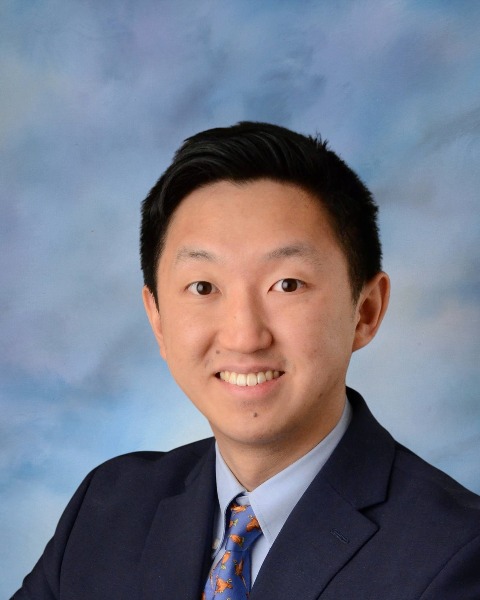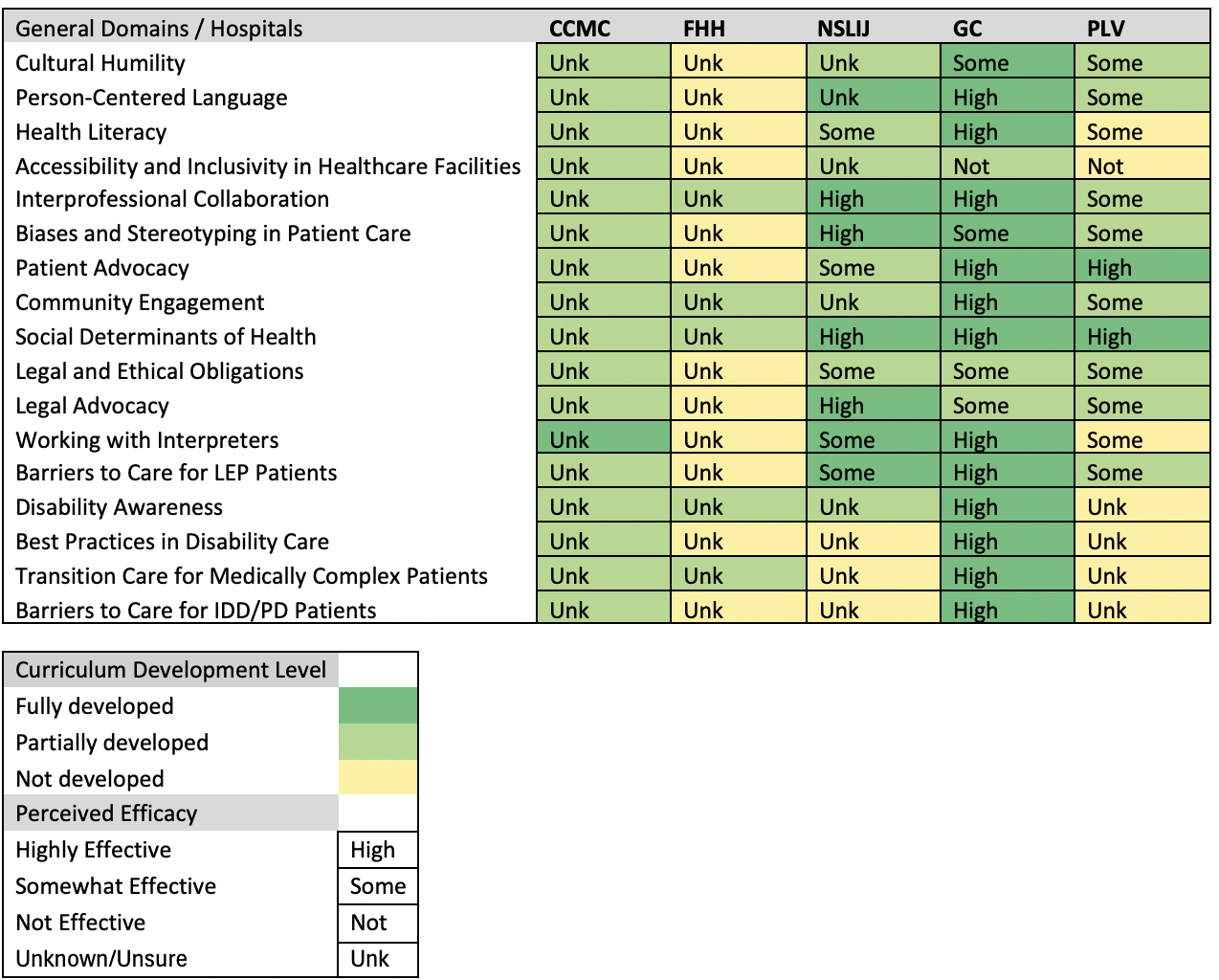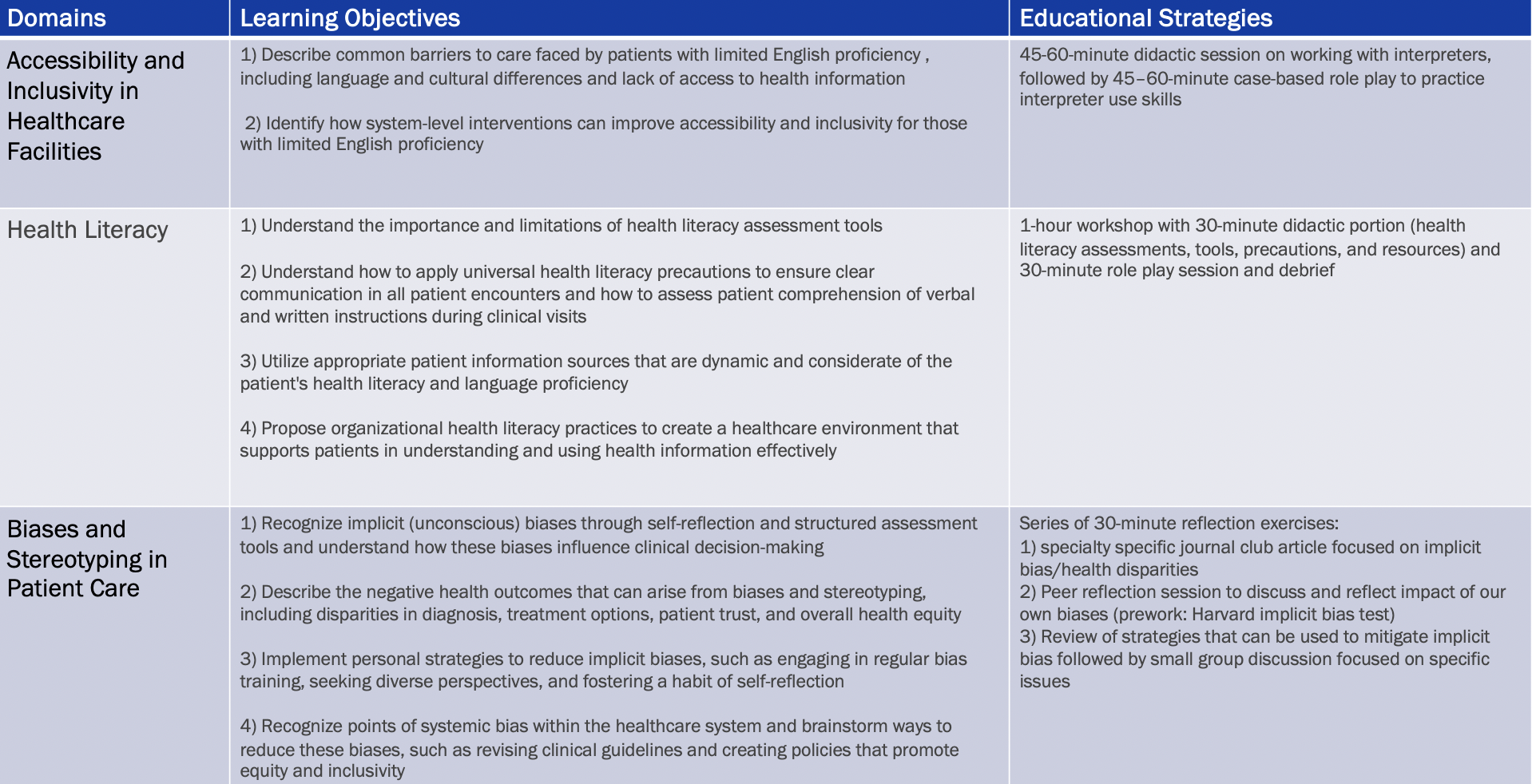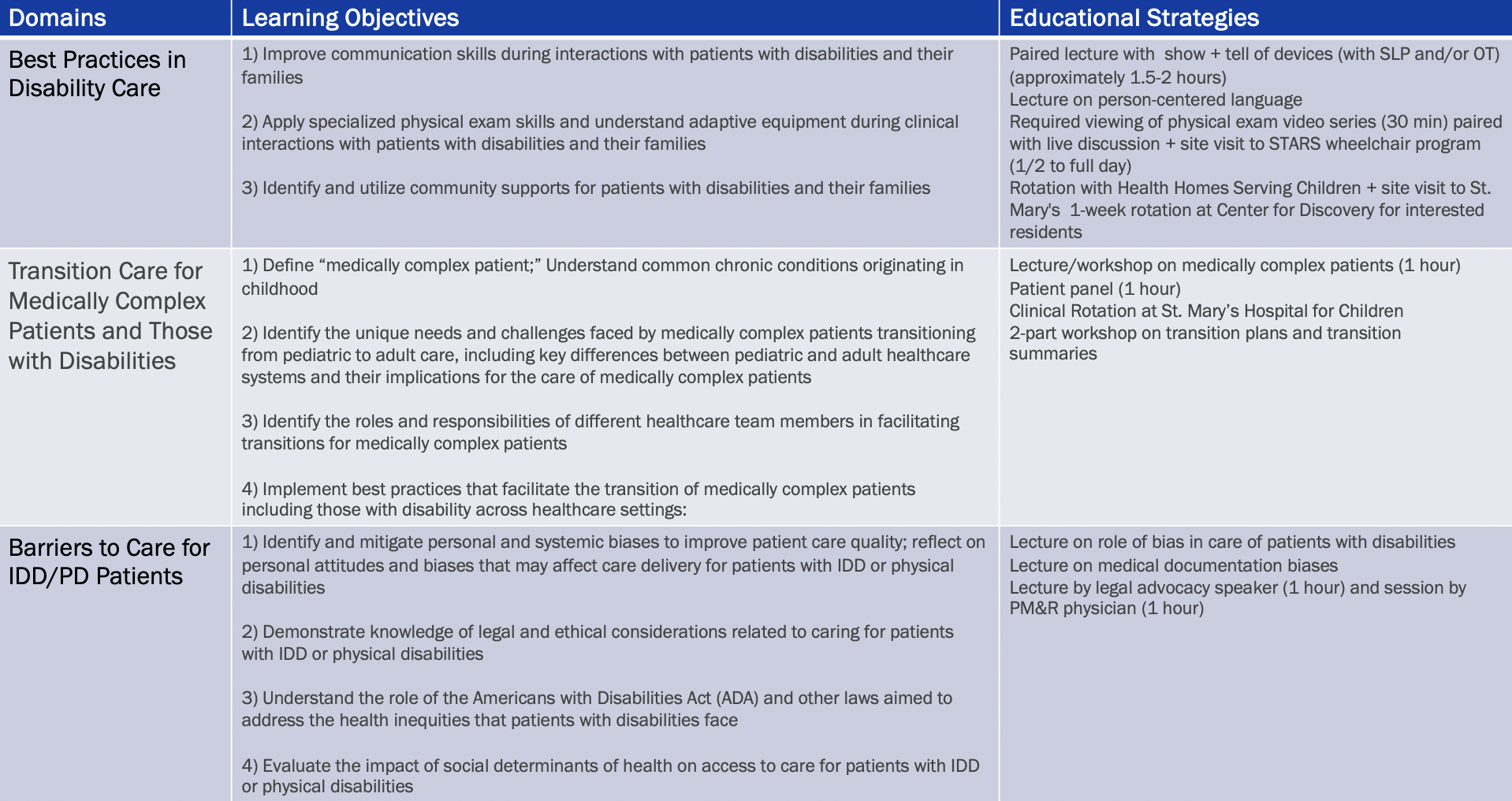Medical Education 6: Health Equity
Session: Medical Education 6: Health Equity
447 - Pathways to CARE: Developing Culturally Appropriate Resident Education for Patients with Limited English Proficiency and/or Disability
Saturday, April 26, 2025
2:30pm - 4:45pm HST
Publication Number: 447.5671
Marvin B. Ho, Donald and Barbara Zucker School of Medicine at Hofstra/Northwell, Glen Oaks, NY, United States; Alice Fornari, Donald and Barbara Zucker School of Medicine at Hofstra/Northwell, new hyde park, NY, United States; Ariel T. Nunez, Donald and Barbara Zucker School of Medicine at Hofstra/Northwell, Lake Success, NY, United States; Caren Steinway, Cohen Children's Medical Center, Queens, NY, United States; Michael Cassara, Northwell Health, Lake Success, NY, United States; Mariecel Pilapil, Cohen Children's Medical Center, New Hyde Park, NY, United States; Pratichi K.. Goenka, Northwell Health, New Hyde Park, NY, United States; Sophia Jan, Cohen Children's Medical Center of Northwell Health, New Hyde Park, NY, United States

Marvin B. Ho, BA (he/him/his)
Medical Student
Donald and Barbara Zucker School of Medicine at Hofstra/Northwell
Glen Oaks, New York, United States
Presenting Author(s)
Background: Patients with Limited English Proficiency (LEP) or physical and/or intellectual disabilities experience barriers to care and have inferior healthcare outcomes. Resident physicians often lack knowledge, comfort, and self-efficacy in providing optimal care for these populations across the lifespan and lack exposure to local community agencies which can partner in supporting these patients. Amidst many residency curricular demands, there is a need for the development of a sustainable system-based focus to ensure equitable care and adequate trainee preparation for two frequently encountered populations.
Objective: To design a novel curriculum to enhance the ability of residents to provide culturally appropriate care for patients with LEP and/or disabilities.
Design/Methods: As part of a 5-year HRSA funded grant, we developed a novel residency curriculum for 5 programs across 3 departments (Pediatrics, Medicine, Family medicine) in a large suburban healthcare system using Kern’s 6-step approach to curriculum development. We identified a need for enhanced residency training in caring for patients with LEP/disability though annual program assessments (Step 1). A targeted needs assessment to evaluate ongoing educational activities was developed and distributed to program leadership (Step 2). A curriculum committee consisting of medical educators with expertise in caring for these populations used a modified Delphi method to identify core domains and create goals and objectives with appropriate educational strategies (Steps 3, 4). An advisory board of executive sponsors, residency leadership, and clinical partner organizations was created, and the curriculum was piloted with pediatric residents before expanding to internal and family medicine (Step 5). A strategy for learner evaluation was developed utilizing an annual questionnaire and one minute paper post-survey (Step 6).
Results: The targeted needs assessment found mixed curricular development between programs across 17 domains (Fig 1). Curricular components addressing 6 core domains were delivered through noon conference, workshops, patient simulations, faculty development workshops, internal rotations, and external rotations with clinical partner organizations (Fig 2,3).
Conclusion(s): We designed a framework to engage residency leaders and educators and developed curriculum to address 6 identified core domains relevant to the care of patients with LEP and/or disability, which was delivered to a pilot cohort of 105 pediatric residents and will undergo continued revision as it is expanded to reach 575 residents in the remaining disciplines over the next 3 years.
Targeted Needs
Assessment: Evaluation of Curriculum Development and Efficacy by Program Directors
 CCMC: Cohen Children's Medical Center (Pediatrics)
CCMC: Cohen Children's Medical Center (Pediatrics)FHH: Forest Hills Hospital (Medicine)
NSLIJ: North Shore Long Island Jewish (Medicine)
GC: Glen Cove (Family Medicine)
PLV: Plainview (Family Medicine)
LEP Educational Domains, Learning Objectives, and Educational Strategy

Disability Educational Domains, Learning Objectives, and Educational Strategy


